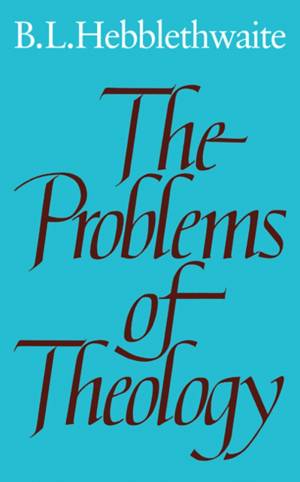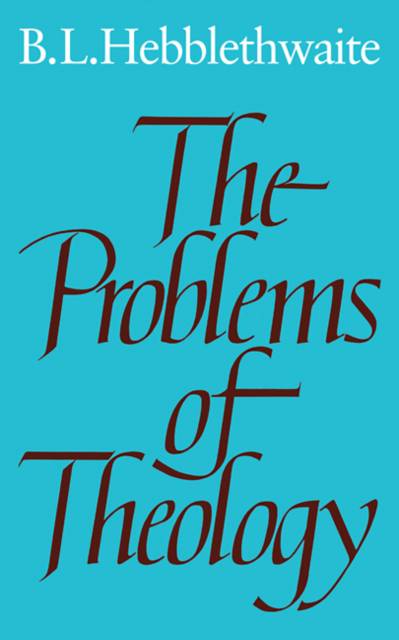
Bedankt voor het vertrouwen het afgelopen jaar! Om jou te bedanken bieden we GRATIS verzending (in België) aan op alles gedurende de hele maand januari.
- Afhalen na 1 uur in een winkel met voorraad
- In januari gratis thuislevering in België
- Ruim aanbod met 7 miljoen producten
Bedankt voor het vertrouwen het afgelopen jaar! Om jou te bedanken bieden we GRATIS verzending (in België) aan op alles gedurende de hele maand januari.
- Afhalen na 1 uur in een winkel met voorraad
- In januari gratis thuislevering in België
- Ruim aanbod met 7 miljoen producten
Zoeken
The Problems of Theology
Brian Hebblethwaite, Brian L Hebblethwaite, Hebblethwaite Brian
Paperback | Engels
€ 72,45
+ 144 punten
Uitvoering
Omschrijving
Faculties of theology are a traditional feature of most western European universities, yet in colleges of education, schools and in some newer universities the subject is studied, if at all, under the heading of 'religious studies'. Taking the question 'Is there such a subject?' as his point of departure, the author sets out to explore the relation between theology and the broader field of religious studies. Theology primarily means 'rational talk about God', but the word is used in other wider and looser senses as well. Mr Hebblethwaite discusses in what ways it is possible for non-believers to engage in theology, and stresses the need for all to pursue the subject openly and self-critically in a religiously pluralist world. Criteria for truth-claims in religion and the problem of revelation are among the topics examined. In the course of his study the author looks at the relationship between theology and a number of adjacent subjects: psychology and the social sciences, philosophy, history and ethics.
Specificaties
Betrokkenen
- Auteur(s):
- Uitgeverij:
Inhoud
- Aantal bladzijden:
- 176
- Taal:
- Engels
Eigenschappen
- Productcode (EAN):
- 9780521298117
- Verschijningsdatum:
- 11/09/1980
- Uitvoering:
- Paperback
- Formaat:
- Trade paperback (VS)
- Afmetingen:
- 127 mm x 203 mm
- Gewicht:
- 195 g

Alleen bij Standaard Boekhandel
+ 144 punten op je klantenkaart van Standaard Boekhandel
Beoordelingen
We publiceren alleen reviews die voldoen aan de voorwaarden voor reviews. Bekijk onze voorwaarden voor reviews.









